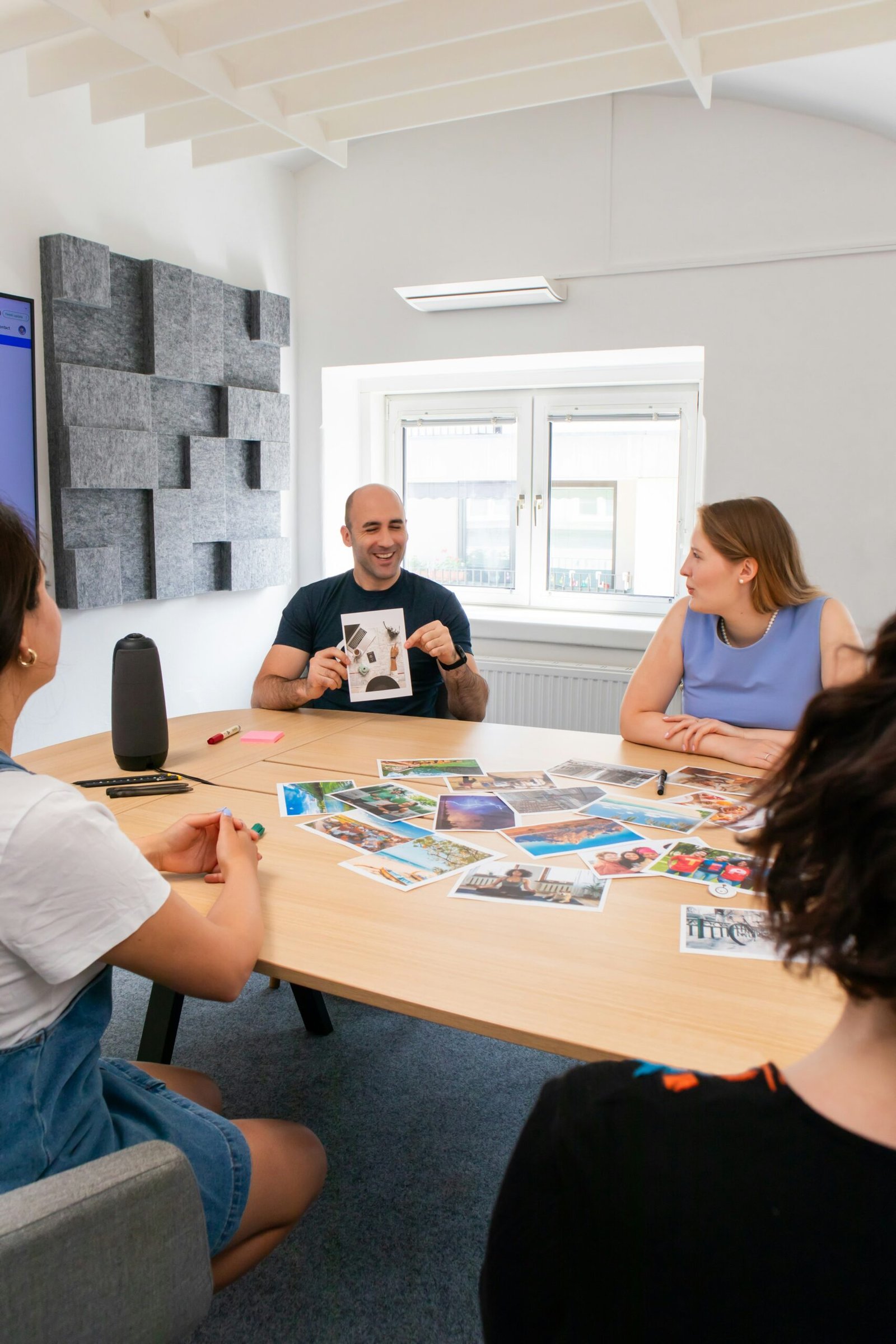Introduction to Interview Success Strategies
In today’s competitive job market, mastering interview success strategies is crucial for job seekers aiming to secure their desired positions. The interview process is often the final hurdle in the journey to employment, and how you perform can significantly influence the outcome. Understanding and implementing effective strategies can make the difference between receiving a job offer and continuing the search.
This blog post aims to provide valuable insights into various tips and techniques that will help readers impress employers during interviews. From understanding the importance of thorough preparation to mastering the art of answering challenging questions, we will cover a range of topics designed to enhance your interview performance. By adopting these strategies, you can present yourself as a confident, competent, and appealing candidate.
Employers are not only looking for candidates with the right qualifications but also those who can demonstrate strong interpersonal skills, critical thinking, and adaptability. Thus, it is essential to approach each interview with a well-rounded strategy that highlights your strengths while addressing potential weaknesses. With the right preparation and mindset, you can navigate the interview landscape with ease and emerge successful.
Throughout this post, we will explore key elements such as researching the company, practicing common interview questions, and presenting a professional image. By the end, you will be equipped with practical tools and knowledge to help you stand out in any interview setting. Whether you are a seasoned professional or a recent graduate entering the workforce, these strategies will serve as a valuable guide on your path to interview success.
Research the Company
Before stepping into an interview, thorough research of the company is a crucial step that can significantly impact your success. Understanding the company’s history, mission, values, and recent developments not only prepares you for potential questions but also allows you to tailor your responses to align with the company’s ethos.
Start by visiting the company’s official website. This is often the most reliable source of information, where you can find details about their history, mission statement, and core values. Pay particular attention to the “About Us” section and any recent press releases or news updates, as these can provide insight into the company’s current focus and achievements.
LinkedIn is another valuable resource. By visiting the company’s LinkedIn page, you can gain a deeper understanding of its culture, see updates and posts about recent activities, and discover key players within the organization. Knowing the backgrounds of individuals you might be meeting can help you find common ground and create a more personalized conversation during the interview.
Industry news sources and trade publications are excellent for gathering context about the company’s position within its sector. Articles and reports can offer a broader perspective on market trends, the competitive landscape, and how the company is performing relative to others. This knowledge demonstrates your industry awareness and can be particularly impressive to employers.
Armed with this information, you can craft responses that show your genuine interest in the company and how your skills and experiences align with their needs. For example, if the company values innovation, you could highlight your experience with creative problem-solving. If they are heavily involved in community service, mentioning your volunteer work can resonate well.
In conclusion, investing time in researching the company not only boosts your confidence but also positions you as a well-prepared and enthusiastic candidate. This effort reflects your dedication and can set you apart from other applicants, leaving a lasting impression on potential employers.
Understand the Job Description
Thoroughly understanding the job description is crucial for any candidate aiming to impress potential employers during an interview. The job description serves as a roadmap, outlining the essential skills, qualifications, and responsibilities the employer is seeking. By dissecting this document, candidates can strategically align their experiences and qualifications with the job’s requirements, thereby enhancing their chances of success.
The first step in this process is to carefully read the job description and identify key skills and qualifications. Look for keywords and phrases that are frequently mentioned, as these often indicate the most critical aspects of the role. For instance, if a job description repeatedly emphasizes “project management” and “team leadership,” it is safe to assume that these are high-priority skills for the employer.
Once you have identified these key elements, the next step is to align your own experiences and qualifications accordingly. Reflect on your past roles and pinpoint specific instances where you have demonstrated the skills and competencies highlighted in the job description. For example, if the job requires strong project management abilities, consider discussing a successful project you led, detailing how you planned, executed, and delivered it within budget and timelines.
During the interview, it is essential to highlight these relevant skills and achievements to show that you are a perfect fit for the role. Use the STAR (Situation, Task, Action, Result) method to structure your responses, ensuring you provide clear and concise examples. For example, you might say, “In my previous role as a project manager at XYZ Company, I successfully led a team of 10 to complete a critical project three weeks ahead of schedule, resulting in a 15% cost saving for the company.”
By thoroughly understanding the job description and strategically aligning your experiences with the employer’s needs, you can effectively demonstrate your suitability for the role and significantly enhance your chances of interview success.
Practice Common Interview Questions
Preparing for an interview involves anticipating both behavioral and technical questions that employers commonly ask. Behavioral questions are designed to gauge how a candidate handles various situations based on their past experiences. Common behavioral questions include:
- Can you describe a time when you faced a challenging situation at work and how you dealt with it?
- Tell me about a time when you had to work under pressure. How did you manage?
- Give an example of a goal you set and how you achieved it.
- Describe a situation where you had to work as part of a team. What was your role?
For technical positions, candidates can expect questions that test their specific knowledge and skills relevant to the job. Examples of technical questions might include:
- Explain the process you use to troubleshoot a network issue.
- Describe your experience with programming languages such as Python or Java.
- How do you ensure your code is both efficient and maintainable?
- Can you walk me through a recent project you worked on and the technologies you used?
One effective method for answering behavioral questions is the STAR method, which stands for Situation, Task, Action, and Result. Using this approach, candidates can structure their responses by describing the specific situation they were in, the task they needed to accomplish, the actions they took, and the results they achieved. This method helps provide a clear and concise answer that showcases the candidate’s problem-solving abilities and successes.
It is crucial to practice answering these questions out loud. This not only helps in organizing thoughts but also in refining delivery. Conducting mock interviews with friends or mentors can provide valuable feedback and increase confidence. Being well-prepared for anticipated questions can significantly enhance a candidate’s performance during the actual interview, demonstrating their commitment and readiness for the role.
Dress for Success
Dressing appropriately for an interview is a critical component of making a strong first impression on potential employers. The right attire can set the tone for the interview, demonstrating professionalism and respect for the company’s culture. When selecting what to wear, it is essential to research the company and understand its dress code. For instance, corporate roles typically require formal business attire, such as a suit and tie for men, or a tailored dress, pantsuit, or skirt suit for women. On the other hand, creative industries or startups might have a more relaxed dress code, where smart-casual attire could be more appropriate.
Regardless of the industry, certain elements of professional appearance remain universal. Clothing should be clean, well-fitted, and free of wrinkles. Pay attention to grooming: hair should be neat, nails clean and trimmed, and facial hair well-maintained. Minimalistic and tasteful accessories can complement your outfit without becoming a distraction. A wristwatch, simple jewelry, and a professional-looking bag are often sufficient. Avoid overly flashy or large accessories that may detract from your overall appearance.
While choosing your interview attire, there are specific items to avoid. Steer clear of overly casual clothes such as jeans, t-shirts, and sneakers, unless the company explicitly states that such attire is acceptable. Bright, neon colors or bold patterns can also be inappropriate in most professional settings. It is also advisable to avoid excessive cologne or perfume, as strong scents can be off-putting. The goal is to present yourself as polished and professional, aligning with the company’s expectations.
Dressing well for an interview not only reflects your seriousness about the opportunity but also boosts your confidence. When you feel good about your appearance, it can positively impact your demeanor and performance during the interview. This confidence, combined with a professional appearance, significantly enhances the likelihood of leaving a positive impression on your potential employer.
Showcase Your Soft Skills
Soft skills, often referred to as interpersonal or people skills, are non-technical abilities that influence how you interact with others and manage your work. These skills are vital in the workplace as they complement technical skills, fostering a more efficient, harmonious, and productive environment.
Examples of essential soft skills include communication, teamwork, problem-solving, and adaptability. Effective communication involves not only speaking clearly and concisely but also listening actively and empathetically. Teamwork is the ability to collaborate with colleagues, respecting diverse perspectives and contributing to a common goal. Problem-solving entails analyzing situations, identifying potential issues, and developing solutions. Lastly, adaptability is the capacity to adjust to new conditions, roles, or challenges swiftly and smoothly.
During an interview, highlighting your soft skills can set you apart from candidates with similar technical qualifications. One effective strategy is to share examples and anecdotes that demonstrate these skills in action. For instance, when discussing a project, emphasize how your communication skills facilitated smooth interactions with team members or how your adaptability enabled you to pivot strategies in response to unexpected challenges.
Additionally, you can subtly weave these skills into your responses to common interview questions. For example, when asked about a difficult situation you faced, describe how your problem-solving abilities helped you navigate the issue and achieve a positive outcome. If asked about working in a team, highlight how your teamwork and communication skills contributed to the group’s success.
Demonstrating soft skills effectively can differentiate you from other candidates. Employers often seek individuals who can not only perform technical tasks but also thrive in a collaborative and dynamic work environment. By showcasing your soft skills during the interview, you enhance your appeal as a well-rounded candidate, capable of contributing to the company’s success in multiple dimensions.
Ask Insightful Questions
Asking insightful questions at the end of an interview is a crucial strategy to leave a positive impression on potential employers. It not only demonstrates your genuine interest in the company and the role but also highlights your preparedness and analytical thinking. When preparing for an interview, consider crafting questions that delve into various aspects of the organization and the position you are applying for.
One effective approach is to inquire about the company’s culture. For example, you might ask, “Can you describe the company culture and how it supports the team’s success?” Such questions show that you are interested in understanding the environment in which you will be working and are keen on ensuring it aligns with your values and work style. Additionally, asking about team dynamics can be insightful. You could ask, “How does the team collaborate on projects, and what role does this position play within the team?” This question not only reflects your interest in teamwork but also indicates your desire to understand your potential role in contributing to the team’s success.
Moreover, showcasing your long-term interest in the company by asking about growth opportunities can be advantageous. For instance, questions like, “What are the potential career paths for someone in this role?” or “How does the company support professional development and career growth?” demonstrate that you are thinking ahead and see yourself as a valuable long-term asset to the company.
While it is important to ask insightful questions, it is equally important to avoid questions that focus solely on salary and benefits at this stage. Such inquiries can give the impression that your primary interest lies in compensation rather than the role itself. Instead, focus on questions that reflect a genuine curiosity about the company’s operations and your potential fit within the team. By doing so, you will leave a lasting impression of a well-prepared and genuinely interested candidate.
Follow Up After the Interview
Following up after an interview is a crucial step in the job application process that can significantly impact your chances of securing the position. A well-crafted thank-you email serves multiple purposes: it shows appreciation for the opportunity, reiterates your interest in the role, and provides a platform to briefly reinforce why you are a good fit for the position.
When drafting your thank-you email, begin by expressing your gratitude for the interviewer’s time and the opportunity to discuss the role. Mention specific points from the interview that resonated with you, which shows attentiveness and genuine interest. For example, you might say, “I appreciated our discussion about the company’s innovative approach to project management.” This not only demonstrates that you were engaged during the interview but also reinforces your enthusiasm for the role.
It is important to keep the tone professional and concise. Avoid overly casual language or excessive flattery, as this can come across as insincere. Instead, maintain a balance between politeness and professionalism. Clearly reiterate your interest in the position and briefly highlight how your skills and experiences align with the company’s needs. For instance, “I am excited about the possibility of contributing my background in digital marketing to your team, particularly in enhancing social media engagement.”
Timing is another crucial factor in sending a follow-up email. Ideally, you should send the thank-you email within 24 hours of the interview. This promptness underscores your eagerness and respect for the interviewer’s time. However, if you do not receive a response within a week or two, a polite follow-up email is appropriate. In this follow-up, restate your interest and inquire about the next steps in the hiring process.
If you still do not receive a response, it might be time to move on and continue your job search. However, maintaining a professional demeanor throughout can leave a lasting positive impression, which could benefit you in future opportunities with the same employer.






